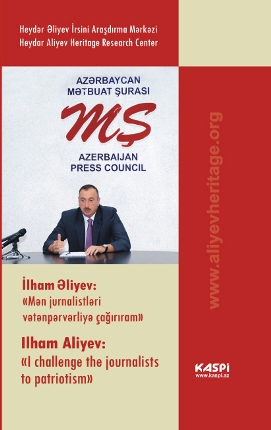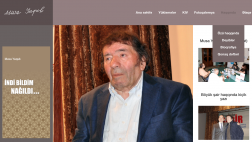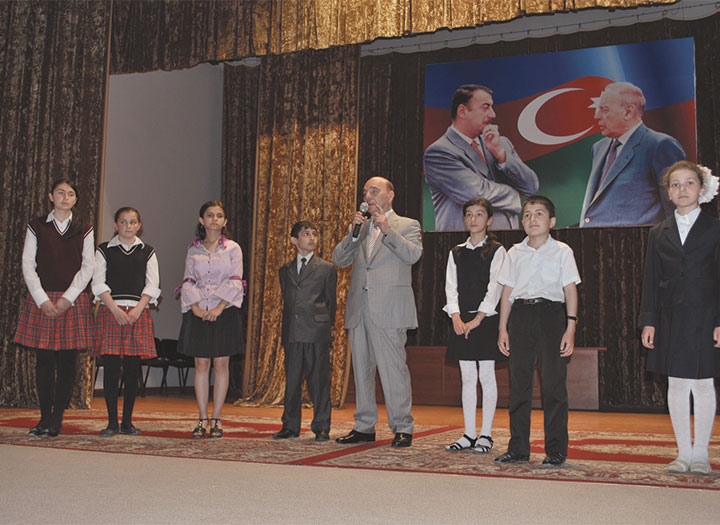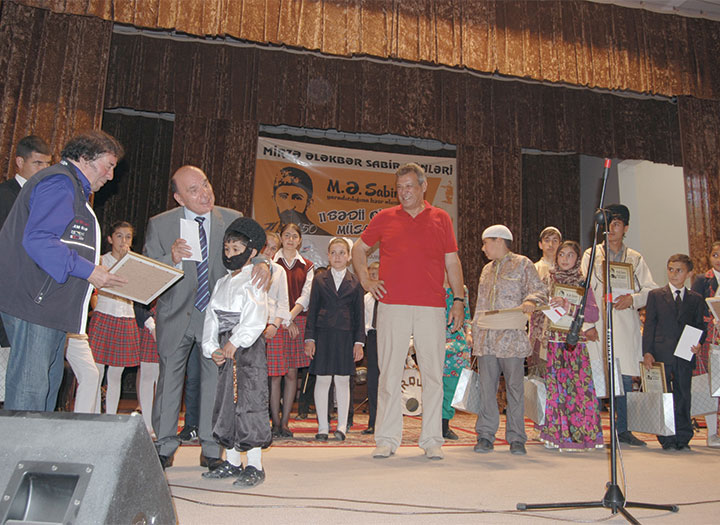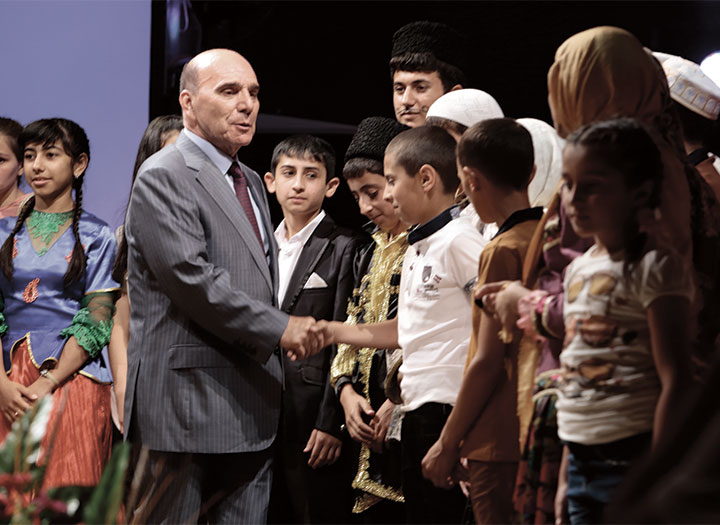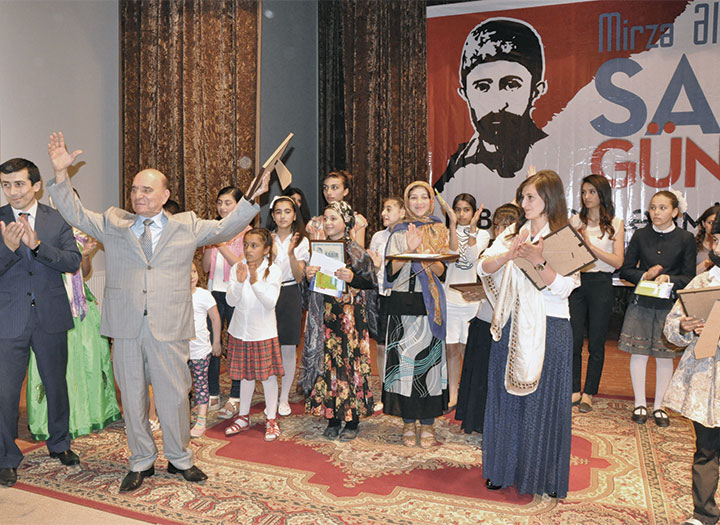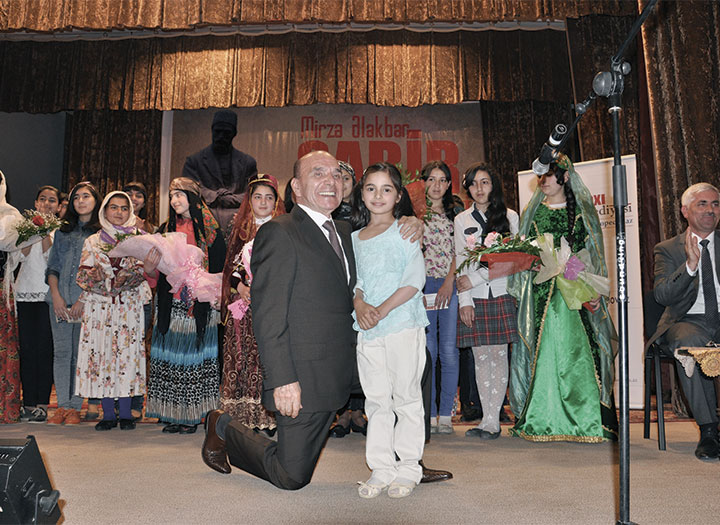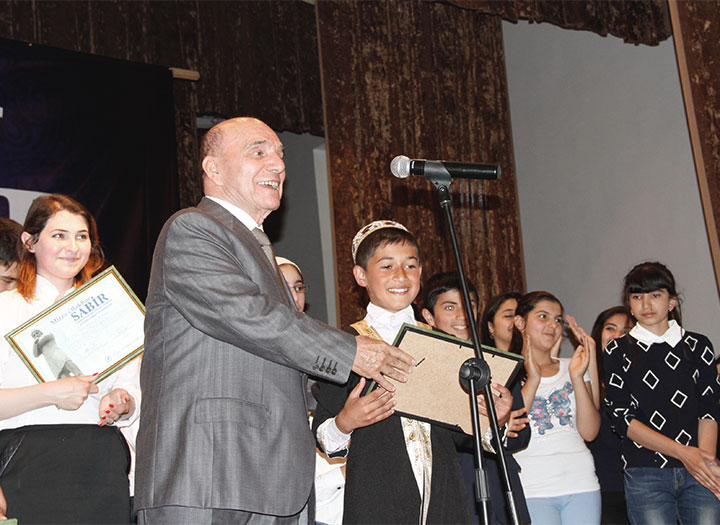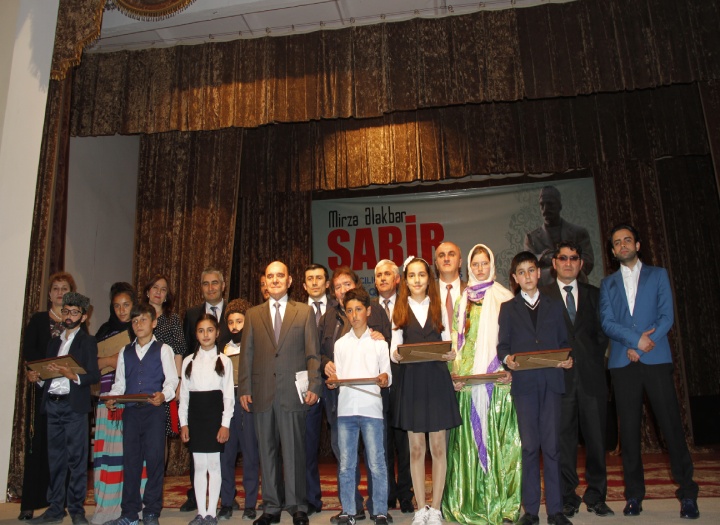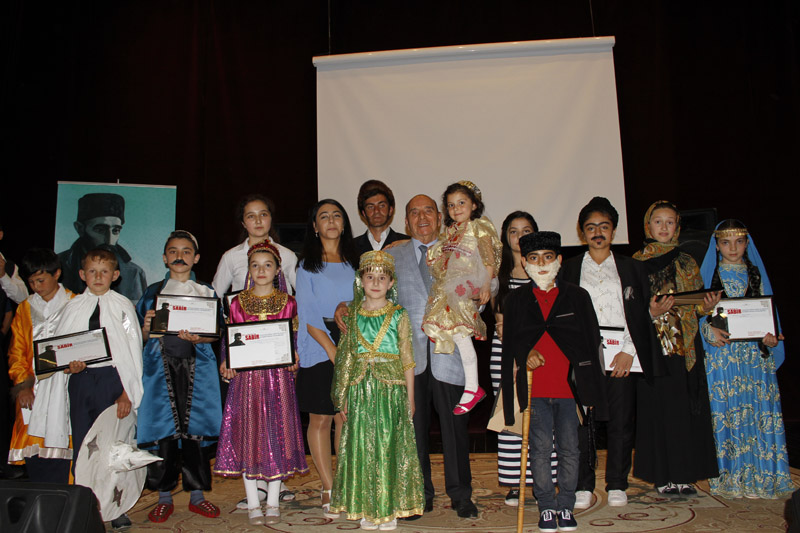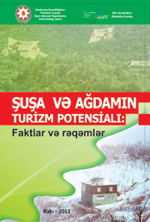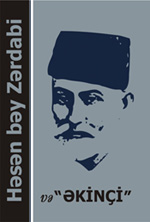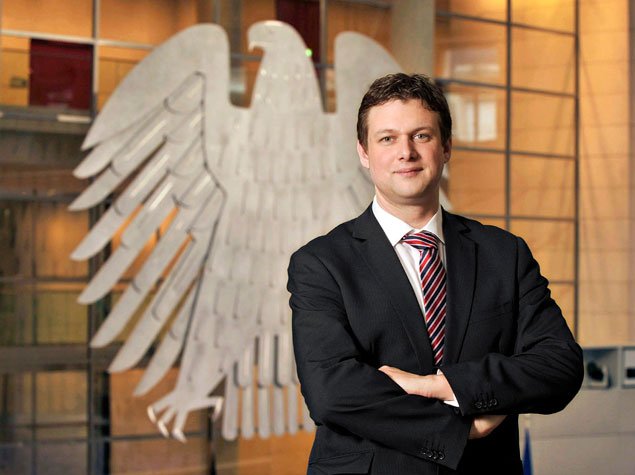 Tobias Zech, Member of the Christian Democratic Union (CDU) and Christian Social Union (CSU) parties in Germany, member of the Employment and Social Affairs and Economic Cooperation and Development Committees, member of the for South Caucasus parliamentary group and member of the German delegation to PACE, gave an interview to the TV Berlin programme Aus dem Bundestag (From Parliament).
Tobias Zech, Member of the Christian Democratic Union (CDU) and Christian Social Union (CSU) parties in Germany, member of the Employment and Social Affairs and Economic Cooperation and Development Committees, member of the for South Caucasus parliamentary group and member of the German delegation to PACE, gave an interview to the TV Berlin programme Aus dem Bundestag (From Parliament).
Issues touched on included German-Azerbaijani relations, Azerbaijan’s role in ensuring European energy security, its integration into the Euro-Atlantic region and the Armenian-Azerbaijani Nagorno-Karabakh conflict, TEAS told APA.
Mr. Zech said that the South Caucasus parliamentary group was continuously in interparliamentary exchange with Georgia, Armenia and Azerbaijan, and encouraged similar contacts between those countries.
He declared that the region was of strategic importance to both European Union and Germany. In his view, the most important issue was regional readiness for dialogue; it was especially important for there to be dialogue between conflicting parties.
He was then asked:
Dialogue is always good. It is the magic word, but it does not always work for one or two countries. It did not work in Georgia; we have already seen Russian intervention there. And part of Azerbaijan, I believe one fifth of the country, is also occupied by foreign troops. Most Germans are unaware of this. What are you doing within German politics to create a deeper understanding?
He replied that the Nagorno-Karabakh conflict, which indeed resulted in the occupation of 20 per cent of Azerbaijan’s territory by the armed forces of Armenia, was disappearing from public view:
It is a conflict that is taking place in our direct vicinity and it has been smouldering for the past twenty years – escalating and de-escalating, again and again. Thankfully, there is currently no open conflict or condition of war, but the conflict smoulders on and the occupation of foreign territory continues.
In discussing what happened in Nagorno-Karabakh 20 years ago, he remarked that following the encroachment by troops of the Republic of Armenia into Azerbaijani territory, the Nagorno-Karabakh region was occupied and approximately one million Azerbaijani refugees and IDPs fled their homes in both Armenia and Nagorno-Karabakh. Thus, Azerbaijan now has one of the highest proportions of refugees in its population.
The Bundestag Member stressed the importance of keeping resolution of the conflict on the agenda. German parliamentarians are trying to establish dialogue with contact groups of members of the Armenian and Azerbaijani parliaments. These contacts take place during sessions of the Parliamentary Assembly of the Council of Europe.
In his view, PACE is an ideal platform for intensifying this dialogue:
I believe that greater willingness could be demonstrated by the EU towards managing this conflict peacefully and finding a solution. I think something is lacking in this respect.
While assessing the current situation in the negotiation process, he noted that will and resolutions alone would not achieve peace: We have to bring the negotiating parties back to the table.
He believed that the absence of dialogue between Armenia and Azerbaijan is a problem:
This is not a conflict between two countries in the South Caucasus, but rather a conflict with international involvement. Direct negotiations between Armenia and Azerbaijan without the intervention of large neighbouring states would probably be more productive, but they are currently not feasible.
A further question followed:
The Azerbaijanis want the troops from the Republic of Armenia to withdraw immediately. This is their constant demand. But the Armenians are not withdrawing and claim that it is their territory. What exactly is the situation under international law here?
Mr. Zech replied:
The situation according to international law is that this is the state territory of Azerbaijan, as recognized by the international community. It has been annexed; this means that there was no contract concerning the assignment or sale of land, as you can imagine. Thus the situation is unacceptable to us and we do not recognise the Republic of Armenia’s occupation of Nagorno-Karabakh. We do not recognise the interim government in Nagorno-Karabakh, nor in Germany do we recognise the ‘elections’ in Nagorno-Karabakh… Our position is that we will not recognise the annexation. Of course we emphasise that this conflict will be resolved. From my perspective, and from our perspective as a whole, withdrawal from Nagorno-Karabakh is the first step towards a resolution of the conflict.
In noting that countries of the South Caucasus countries joined the ‘Eastern Partnership’ in 2009, he said that although these countries were not members of the European Union, good relations had been established with this region:
That was important, as we could appoint special EU representatives. The EU is not fully present at the negotiating table, but it can follow the negotiations.
The Member of the Bundestag also stated his position on the work by international organisations to achieve a peaceful end to the Nagorno-Karabakh conflict. He confessed that international organisations did not have sufficient personnel or equipment to conduct effective monitoring of the conflict zone.
Tobias Zech noted that the OSCE monitoring group of six people was not enough to conduct monitoring at the contact line between the two armies: If the OSCE is serious, they need to increase personnel and equipment.
He also raised the four resolutions adopted by the United Nations Security Council concerning the Armenian-Azerbaijani Nagorno-Karabakh conflict:
We not only voted, we also supported these resolutions. Yes, conflicts like Nagorno-Karabakh cannot be resolved overnight, we know of other conflicts that have been smouldering for more than thirty or forty years. We must now take the next step and try to find a sustainable solution that, above all, allows the refugees from Nagorno-Karabakh to return to their homeland.
While highlighting the importance of the South Caucasus, a neighbour of the European Union, Mr. Zech also pointed to the fact that Azerbaijan is an important trading partner for Germany. He said that they were in constant dialogue with the government in Baku, as well as with parliamentarians and that he often sees his colleagues in the Council of Europe in Strasbourg, where they exchange views on different matters. The German MP also highlighted the fact that Azerbaijan carried the Presidency of the Council of Europe very well in the previous year.
The presenter next asked:
Baku is well known for its oil. It once had the largest oil reserves and Alfred Nobel, the man after whom the Nobel Prize was named, made his millions in Baku. Not many people know that that money still pays for the Nobel Prize today. So how important is Azerbaijan for us as an energy supplier?
Mr. Zech replied that Europe needed greater independence of energy supply and it had been seen that dependence on just one supplier, even if Europe did not currently have problems of supply, might not be a wise position in the long term.
Supporting the stance of most European politicians, he stressed the need for an alternative source and, in this respect, the whole region, but mainly Azerbaijan, was an important contact – and that Germany already obtained a lot of oil from Azerbaijan – it was Germany’s seventh largest supplier.
He believed it was possible to develop a second source via a gas pipeline through the region to supply Europe with energy.
He thought that in German-Azerbaijani and EU-Azerbaijani relations the energy security issue should not overshadow the region’s humanitarian issues. For him the main focus of European diplomacy should be on freeing Azerbaijan’s occupied lands from Armenia’s armed forces, the reason for there being nearly one million refugees and IDPs.
Tobias Zech, Member of the German Bundestag, concluded:
The first demand, which I think is right, is that the troops of the Republic of Armenia must withdraw from Nagorno-Karabakh before we can negotiate peace and before we can find a sustainable solution. But Armenia says that they will only withdraw troops when all points are settled. Thus, we have a chicken and egg scenario. I believe that we have an annexation that is in violation of international law, which must be resolved before all other points can be discussed.
Apa.az
